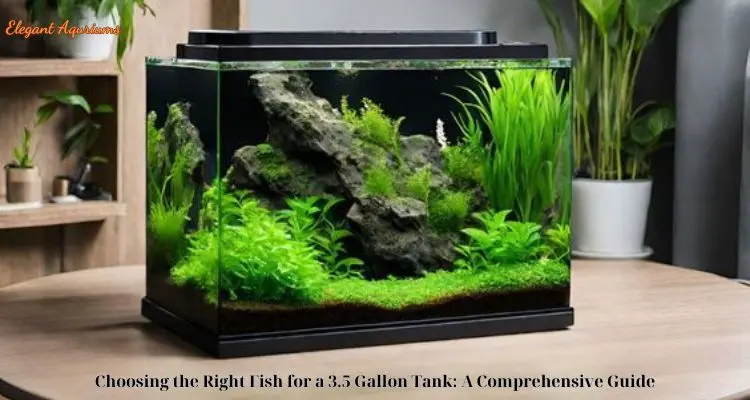Fish care
Ideal Tank Temp for Betta Fish: A Complete Guide
Creating the ideal environment for Betta fish involves various aspects, with tank temp for Betta being one of the most critical factors. Bettas, known for their vibrant colors and graceful movements, require specific conditions to thrive and remain healthy. Elegant Aquriums will delve into the ideal tank temperature for Betta fish, explaining why temperature matters, how to maintain it, and what to do if problems arise.
Understanding the Importance of Tank Temperature for Betta Fish
The tank temperature is crucial for Betta fish as it affects their metabolism, immune system, and overall well-being. Bettas, native to the warm waters of Southeast Asia, thrive in stable, warm temperatures. Fluctuations or extreme deviations from their preferred temperature range can lead to stress, illness, and even death.
Why Temperature Matters
- Metabolism: Betta fish are ectothermic, meaning their body temperature is regulated by the surrounding water. A stable, warm temperature ensures their metabolism functions optimally, affecting their feeding, digestion, and activity levels.
- Immune System: Warm water helps strengthen the Betta’s immune system, enabling it to fend off diseases and parasites. Cold water can suppress immune function, making the fish more susceptible to infections.
- Behavior and Activity: Bettas are more active and display their natural behaviors, such as swimming and exploring, in their ideal temperature range. Extreme temperatures can lead to lethargy or aggressive behavior.
- Stress and Health: Consistent temperature fluctuations can cause stress, which may manifest in symptoms such as reduced appetite, faded colors, or unusual swimming patterns. Prolonged stress can lead to severe health issues.
Ideal Temperature Range for Betta Fish
Betta fish thrive in a specific temperature range that mimics their natural habitat. The ideal tank temp for Betta fish is between 76°F and 82°F (24°C to 28°C). Maintaining this temperature range ensures the fish remain comfortable and healthy.
- Optimal Temperature: The optimal temperature for Betta fish is around 78°F to 80°F (25°C to 27°C). This range provides a balance that supports their metabolism, immune system, and overall well-being.
- Minimum Temperature: Betta fish can tolerate temperatures as low as 76°F (24°C), but prolonged exposure to temperatures below this range can cause stress and health problems.
- Maximum Temperature: Temperatures above 82°F (28°C) can be harmful if sustained for long periods. High temperatures can lead to decreased oxygen levels and increase the risk of heat-related stress.
How to Maintain the Ideal Tank Temp for Betta Fish

Maintaining a stable temperature in your Betta’s tank requires proper equipment and monitoring. Here’s how to achieve and maintain the ideal tank temp for Betta fish:
Use a Reliable Heater
A heater is essential for maintaining the correct temperature in your Betta tank. Choose a heater designed for aquarium use, with a suitable wattage for a 10-gallon or smaller tank. Adjustable heaters allow you to set and maintain the desired temperature.
- Submersible Heaters: These heaters are placed inside the tank and provide consistent heating. They are usually adjustable and come with a thermostat to maintain the set temperature.
- Inline Heaters: Installed outside the tank, inline heaters are connected to the filter system and are effective for larger tanks or setups with multiple tanks.
Install a Thermometer
A thermometer helps you monitor the water temperature and ensure it remains within the ideal range. There are several types of thermometers:
- Stick-on Thermometers: These are attached to the outside of the tank and provide a quick temperature reading.
- Floating Thermometers: Placed inside the tank, they float on the water surface and offer an accurate reading of the water temperature.
- Digital Thermometers: These provide precise readings and are often equipped with alarms for temperature fluctuations.
Monitor and Adjust Temperature Regularly
Regular monitoring is key to maintaining a stable temperature. Check the thermometer daily and adjust the heater as needed. If you notice any sudden changes, investigate and address the cause promptly.
- Room Temperature: The temperature of the room where the tank is located can impact the water temperature. Ensure the tank is placed away from drafts, direct sunlight, or heat sources.
- Heater Calibration: Occasionally check and recalibrate the heater if necessary. Over time, heaters can become less accurate or malfunction.
Prevent Temperature Fluctuations
Temperature fluctuations can stress your Betta fish and disrupt their health. To prevent fluctuations:
- Avoid Frequent Water Changes: Large or frequent water changes can alter the tank temperature. Perform partial water changes and ensure new water is at the same temperature as the tank water.
- Insulate the Tank: In colder environments, use an aquarium heater cover or tank insulation to help maintain a stable temperature.
- Check Heater Functionality: Regularly inspect the heater for proper operation and replace it if it shows signs of wear or malfunction.
Common Temperature-Related Issues and Solutions
Even with the best equipment and practices, temperature issues can arise. Here are common problems and how to address them:
Cold Water
Problem: If the water temperature drops below the ideal range, Betta fish may become lethargic and prone to illness.
Solution: Increase the heater’s temperature setting and ensure it’s functioning correctly. If the room temperature is too low, consider using an aquarium heater cover or placing the tank in a warmer area.
Overheating
Problem: Water temperatures above the ideal range can lead to stress, decreased oxygen levels, and potential health issues.
Solution: Lower the heater’s temperature setting and use a cooling fan or air conditioner to regulate room temperature. Ensure the heater is not malfunctioning or set too high.
Temperature Fluctuations
Problem: Frequent temperature changes can cause stress and health problems for Betta fish.
Solution: Maintain a stable temperature by using a reliable heater, monitoring regularly, and avoiding large water changes. Insulate the tank if necessary.
Tips for a Healthy Betta Fish Environment
- Proper Filtration: Use a filter to keep the water clean and reduce the need for frequent water changes. A filter also helps maintain a stable temperature by providing gentle water movement.
- Regular Water Changes: Perform regular water changes to maintain water quality. Clean the tank and remove any uneaten food or waste. Ensure that the new water is the same temperature as the tank water to avoid sudden temperature changes.
- Avoid Overcrowding: Keep the tank appropriately sized for your Betta fish and avoid overcrowding. Overcrowded tanks can lead to stress and higher temperatures due to increased waste and limited oxygen.
- Tank Accessories: Use tank decorations and plants that are suitable for Betta fish. Ensure that they do not obstruct the water flow or interfere with the heater’s performance.
- Behavioral Observations: Monitor your Betta’s behavior for any signs of stress or discomfort. If you notice changes in activity levels, appetite, or appearance, check the tank temperature and overall tank conditions.
Conclusion
Maintaining the ideal tank temp for Betta fish is essential for their health and well-being. By understanding their temperature requirements, using appropriate equipment, and implementing effective maintenance practices, you can create a comfortable and thriving environment for your Betta fish. Regular monitoring and adjustments will help prevent temperature-related issues and ensure your Betta remains vibrant and active.
Remember, a stable and warm temperature is not only beneficial for your Betta’s health but also enhances their natural behaviors and overall quality of life. With proper care and attention, you can enjoy a beautiful and healthy Betta fish that thrives in its ideal temperature range.











